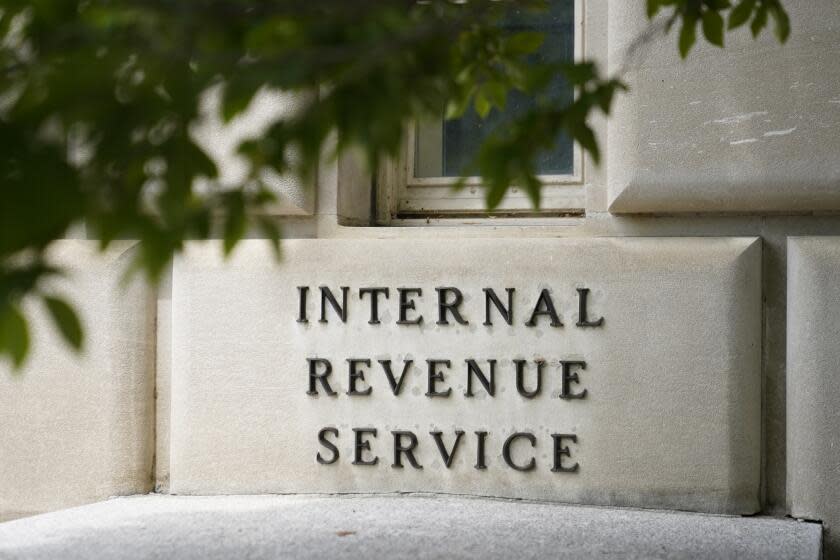IRS, California postpone tax deadline again for most state residents

For the record:
1:45 p.m. Oct. 16, 2023: An earlier version of this article said 53 of California’s 56 counties are affected by the postponement. Fifty-five of California’s 58 counties are affected.
At some point, Californians will have to pay the the taxes they owe on their 2022 income.
That point has not yet arrived, however.
In January, citing the winter storms that led to federal emergency and disaster declarations, the Internal Revenue Service postponed the due date for most Californians' 2022 returns from April 17 to May 15. Then in March, the agency pushed the deadline to Oct. 16. The relief later was extended to taxpayers in 55 of the state's 58 counties and applied to state and federal returns.
But when the due date arrived Monday, the IRS offered yet another postponement — to Nov. 16. The agency offered no reason for granting the extra time.
Read more: IRS will start taking tax documents digitally as it aims to go paperless
In the early evening, the Franchise Tax Board announced that it would follow suit, saying taxpayers in the affected counties would have until Nov. 16 to file their state returns. "FTB generally conforms to Internal Revenue Service postponement periods for presidentially declared disasters," the state agency said.
No official estimate was available of the number of taxpayers who had yet to file their 2022 returns. In a typical year, 1.2 million to 1.5 million Californians ask to delay filing their federal returns until October, the agency said.
The move may come too late to help many business filers, tax professional Wayne R. McDonald said in an email.
"Businesses must generally set up their payments one banking day in advance to settle on a due date," he said, which means they would already have had to make arrangements Friday to pay the feds on Monday.
Read more: How to file your taxes and get your refund for free in 2023
Most taxpayers have their employers withhold more from their pay than they ultimately owe in taxes, so they receive refunds the following year. That's why the delayed deadline should not have deterred most Californians from filing their returns as soon as they were able this year; otherwise, they were lending the federal government money interest-free.
But the later deadline also applies to the quarterly payments due in April, June and September for those who make estimated tax payments, as well as quarterly payroll and excise tax returns that were due in May, July and October. And it pushes back until November the deadline for making contributions to IRAs and health savings accounts as if they'd been made in 2022.
The only Californians not affected by the delay are businesses and individuals in Lassen, Modoc and Shasta counties, whose returns and payments were already due. The IRS says the new deadlines will be applied automatically to any taxpayer whose address of record is in one of the 55 affected counties.
The agency advises anyone who receives a late filing notice they believe is undeserved — for example, they lived in an affected county at the time of the storms but changed addresses later, or they lost access to important records held in an affected county — to call the IRS at (866) 562-5227.
Disaster-related losses and disaster relief payments are eligible for special treatment under federal tax law. For more information, consult a tax accountant or read IRS Publication 547, Casualties, Disasters and Thefts and IRS Publication 525, Taxable and Nontaxable Income.
This story originally appeared in Los Angeles Times.

